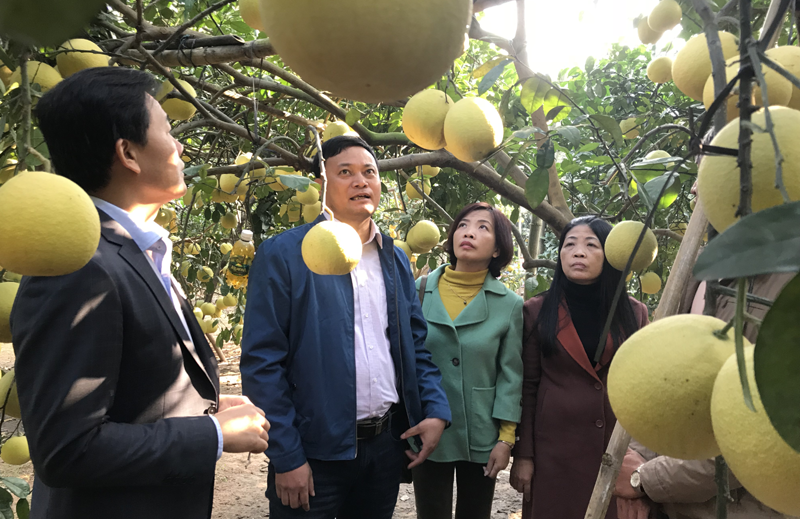Hanoi to spend $10.7m on developing special pomelo varieties
Hanoi will focus on building and developing pomelo growing areas under the standards of VietGAP, GlobalGAP to meet the local consumption and export.
Hanoi plans to spend about VND246 billion (US$10.7 million) on developing of growing Tan Lac red pomelo and some other speciality pomelo varieties.
Standing vice chairman of Hanoi People's Committee Nguyen Van Suu has signed the decision No 5343/QD-UBND on the plan for development of production of variety of Tân Lạc red pomelo and other kinds of Hanoi’s speciality pomelo for the period 2021-25.
During the five years, Hanoi will focus on building and developing pomelo growing areas under the standards of VietGAP, GlobalGAP to meet the local consumption and export.
| Visitors see the model of safe pomelo in Vân Hà Commune, Phúc Thọ District. Photo kinhtedothi.vn |
By 2025, the city aims to plant 200ha of pomelo varieties of Tan Lac, Dien, Tam Van and Tho Bach Ha.
The city will also build three pomelo growing areas associated with production and product consumption; building and maintaining three collective marks as well as providing three global codes to find the origin of concentrated pomelo growing areas.
The expense to implement this plan is nearly VND246 billion, of which the city budget will support VND84.5 billion ($3.6million), the rest is from organisations and individuals.
The Hanoi Department of Agriculture and Rural Development is responsible for guiding and co-ordinating with relevant departments and units to implement the above plan.
According to the department's statistics, the city now has 5,700ha of growing pomelo with the output of over 62,000 tons per year, reaching an average of 20-22 quintals per ha. In particular, these pomelo varieties have a long harvest time from September to January next year, so they can meet the requirements of planting and consuming fruits.
In the recent years, many localities in the city have chosen pomelo to develop effectively to carry out the project of restructuring the municipal agricultural sector, converting to high-quality plants.










